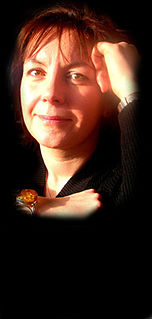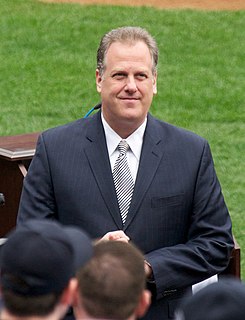A Quote by Floyd Skloot
In question-and-answer sessions after a reading or during an interview, I forget the question if I'm giving too long an answer. And at the end, I can't remember any of the questions. The more anxious I am about remembering, the more likely I am to forget.
Related Quotes
To be a scientist you have to be willing to live with uncertainty for a long time. Research scientists begin with a question and they take a decade or two to find an answer. Then the answer they get may not even answer the question they thought it would. You have to have a supple enough mind to be open to the possibility that the answer sometimes precedes the question itself.
So many writers come to class with one question dominant in their mind, 'How do I make a living from this?' It's a fair enough question and one I always try to answer well- but it saddens me that it so often overshadows the more relevant questions of 'why am I writing' and 'what am I saying' and 'how do I keep it honest.
Curiosity and listening [are the principles to an excellent interview]. I never go into an interview with a dedicated list of questions in which I will not deviate. You must be curious about the subject and listen to his answer and ask the next question off that rather than the next question on your list.
Every once in awhile, find a spot of shade, sit down on the grass or dirt, and ask yourself this question: “Do I respect myself?” A corollary to this question: “Do I respect the work I’m doing?” If the answer to the latter question is NO, then the answer to the former question will probably be NO too. If this is the case, wait a few weeks, then ask yourself the same two questions. If the answers are still NO, quit.
In the Marquette Lecture volume, I focus on the question in the title. I emphasize the social and political costs of being a Christian in the earliest centuries, and contend that many attempts to answer the question are banal. I don't attempt a full answer myself, but urge that scholars should take the question more seriously.






































